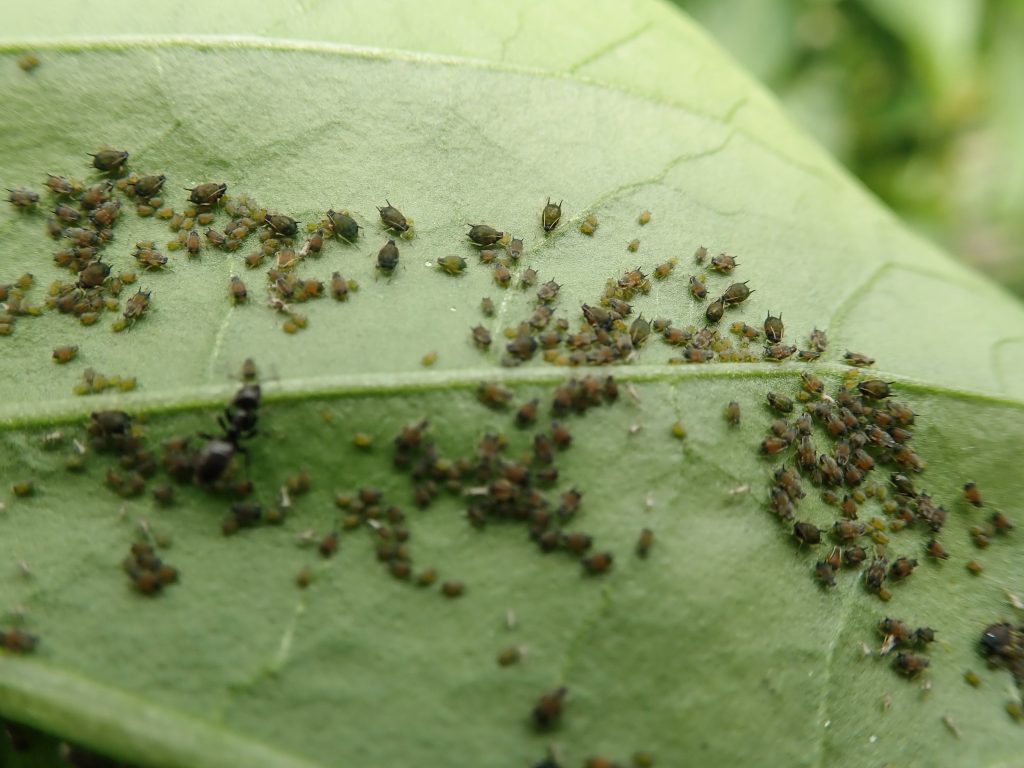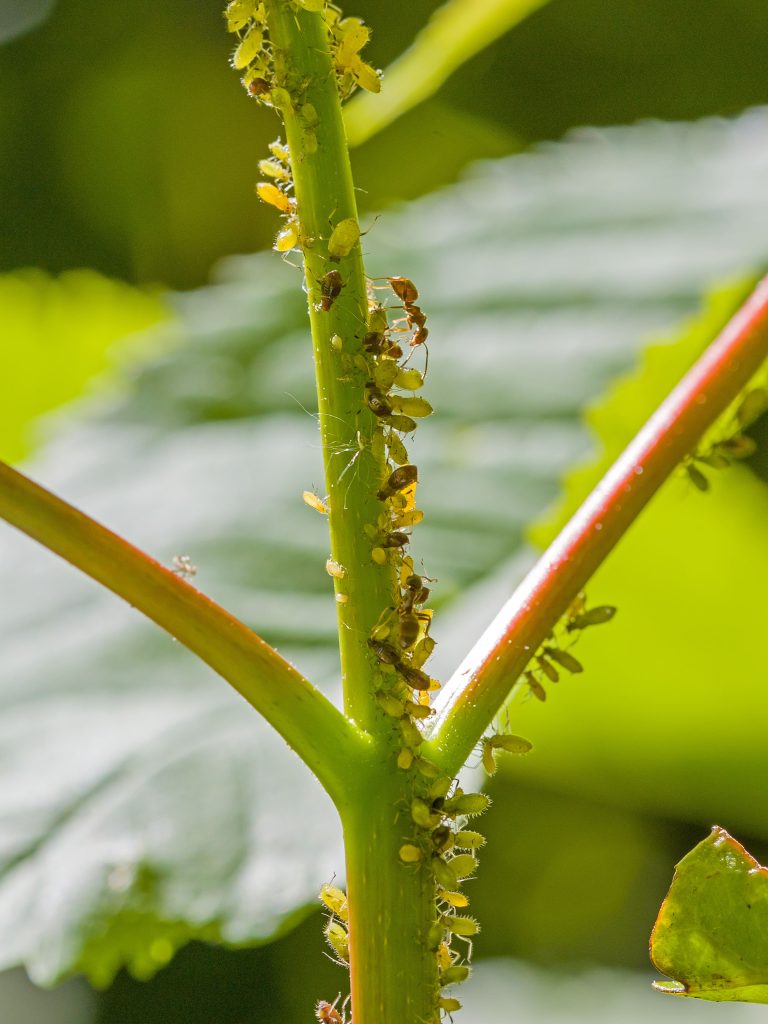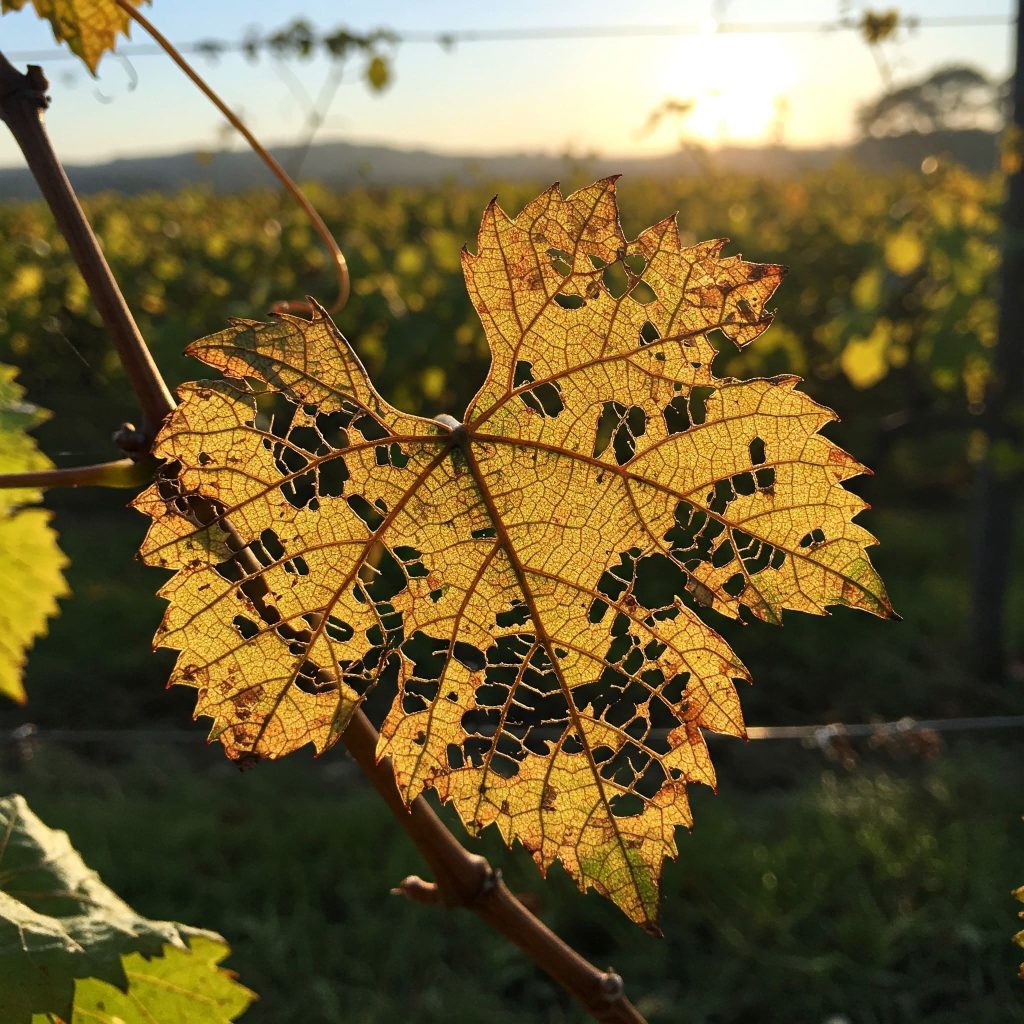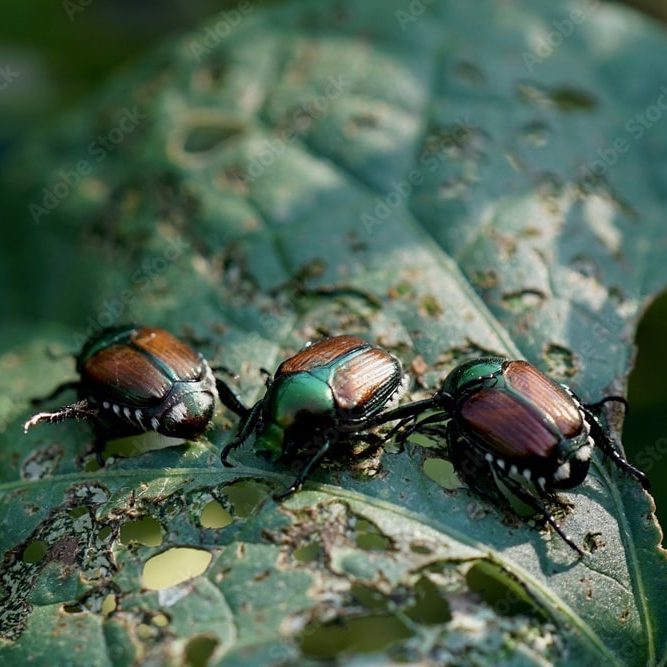Aphids and Japanese beetles in Vancouver are showing up in high numbers this summer, especially in commercial and strata landscapes with dense planting. These pests pose a real challenge to plant health and visual appearance. If your property shows signs like sticky residue, chewed foliage, or ant trails, early detection is key to preventing major damage.
We’ll walk you through how to identify these pests early and share eco-friendly pest management strategies designed for commercial and strata properties.
1. Aphids and Ants: A Sticky Situation
Aphids are tiny, soft-bodied insects that cluster on tender new shoots and leaves, feeding on plant sap. As they feed, they leave behind honeydew, a sticky, sugary substance that attracts ants and leads to black sooty mold on foliage. In turn, ants “farm” aphids, protecting them from predators to harvest the honeydew, which makes infestations worse. These two pests often appear together and should be managed as a pair.

Why it matters
Heavy aphid infestations can weaken plants, stunt new growth, deform leaves, and make shrubs more vulnerable to disease. The buildup of mold and ant activity further reduces plant health and appearance which is a big concern for high-visibility commercial and strata properties.
Signs to watch for:
• Sticky residue on pavement, benches, or parked cars beneath trees
• Shiny or tacky leaves and plant stems

Eco-friendly control methods:
Spray with water jets: A firm hose spray in the evening dislodges aphids without harming beneficial insects.
Manual pruning: Cut off heavily infested shoots to limit spread.
Encourage natural predators: Ladybugs, lacewings, parasitic wasps, and syrphid flies are effective aphid hunters.
Apply insecticidal soap or neem oil: These options are safe for most beneficial insects when used carefully.
Try companion planting: Grow marigolds, garlic, basil, chives or mint to confuse aphids and attract predators.
Japanese Beetles in Vancouver: Small Bugs, Big Damage
Japanese beetles (Popillia japonica) are invasive pests that pose a serious threat to Vancouver’s commercial and strata landscapes. These beetles feed in large numbers, skeletonizing leaves and damaging turf, shrubs, roses, and fruit trees. In Metro Vancouver, beetle flight season runs from late June to early September, with peak activity in warm, sunny weather above 21 °C.
Signs of presence:
• Skeletonized leaves that appear lacy or transparent
• Clusters of metallic green beetles with copper wings


Sustainable control strategies:
Monitor & report sightings: The Canadian Food Inspection Agency (CFIA) conducts trap surveillance across Metro Vancouver from June 15 to October 15. Residents and contractors should report any detections directly to CFIA.
Follow movement restrictions: As of June 20, 2025, movement of soil, mulch, and plant material from regulated areas requires a movement certificate to prevent further spread.
Containment & treatment: Within quarantine zones, landscape professionals must follow city and CFIA protocols. This includes larvicidal turf treatments (e.g., Acelepryn), adult beetle trapping, and scheduled material removal.
Remove infested material: Avoid transporting potentially contaminated plant waste, especially from known beetle zones.
👉 Read More:
Japanese Beetles in BC: Risks, Prevention & Management | Premier Landscaping Inc.
Metro Vancouver Regional District Japanese Beetle Guidebook
Pest Control for Aphids, Japanese Beetles and More in Vancouver
Our team specializes in identifying and managing aphids, Japanese beetles and more in Vancouver, using proven eco-friendly methods tailored for strata and commercial landscapes.
• Manual removal and targeted spot treatments
• Application of neem oil, insecticidal soap, or horticultural oil
• Cultural practices: selective pruning, mulching, and plant health monitoring
• Early detection systems to catch infestations before they spread
• Seasonal Pest Control & Treatment:
Aphids & Ants
Japanese Beetles
European Chafer Grubs
Root Weevils
Spider Mites
Other sap-sucking or chewing insects
Don’t Wait — Early Detection Makes All the Difference
Need help identifying or managing a pest on your site?
Book a site consultation or learn about our integrated pest management (IPM) options.




